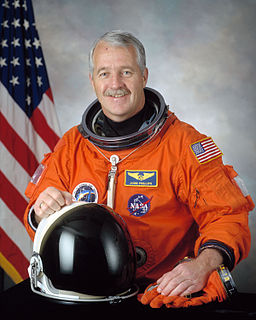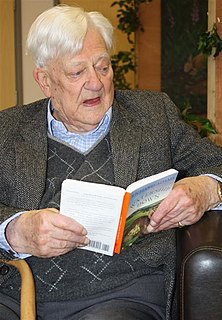A Quote by Kurt Vonnegut
I thought scientists were going to find out exactly how everything worked, and then make it work better. I fully expected that by the time I was twenty-one, some scientist, maybe my brother, would have taken a color photograph of God Almighty—and sold it to Popular Mechanics magazine. Scientific truth was going to make us so happy and comfortable. What actually happened when I was twenty-one was that we dropped scientific truth on Hiroshima.
Quote Topics
Actually
Almighty
Better
Brother
By The Time
Color
Comfortable
Dropped
Everything
Exactly
Expected
Find
Fully
God
God Almighty
Going
Happened
Happy
Hiroshima
How
Magazine
Make
Maybe
Mechanics
My Brother
Out
Photograph
Popular
Scientific
Scientific Truth
Scientist
Scientists
Sold
Some
Taken
Then
Thought
Time
Truth
Twenty
Twenty-One
Us
Were
Work
Worked
Would
Related Quotes
Although I know of no reference to Christ ever commenting on scientific work, I do know that He said, "Ye shall know the truth, and the truth shall make you free." Thus I am certain that, were He among us today, Christ would encourage scientific research as modern man's most noble striving to comprehend and admire His Father's handiwork. The universe as revealed through scientific inquiry is the living witness that God has indeed been at work.
Philosophers often think all scientists must be scientific realists. If you ask a simple question like "Are electrons real?" the answer will be "Yes". But if your questions are less superficial, for example whether some well-known scientist was a good scientist. Then, they had insisted that only empirical criteria matter and that they actually did not believe in the reality of sub-atomic entities. Ask "If that turned out to be true, would you still say they were good scientists?" The answer would reveal something about how they themselves understood what it is to be a scientist.
Elections, for their part, are typically popularity contests rather than measures of candidates' relative competency or effectiveness. Imagine if scientific truth were determined according to which scientist was most popular. To be successful, scientists would have to be charismatic and attractive - and human knowledge would suffer terribly.
When something tragic has happened, you'll find that you, the tragicee, become the person that has to make everything comfortable for everyone else.... As a tragicee and future divorcee, you'll also find that people will question you on the biggest decisions you've ever made in your life as though you hadn't thought about them at all before – as though, through their twenty questions and dubious faces, they're going to shine light on something that you missed the hundredth time around during your darkest hours.
The name of the game is to talk to people. If you don't talk to people, you can't get started...You knock on twenty doors or so, and twenty guys tell you to go to hell, or that they haven't got time. But maybe at the fortieth or sixtieth house you find the one guy who is all you need. You're not going to organize everything; you're just going to get it started.
We scientists have fantasies of being uniquely qualified to make great discoveries. Alas, reality is cruel: most of us are replaceable. For the vast majority of scientific contributions, if scientist X hadn't achieved it that year, scientist Y would have achieved the same result or something very similar soon thereafter.
Scientific truth is not what any one scientist puts forth. It can be that, but it is generally not. It is the sum of multiple studies that all lean in the same direction in their results conducted by different people at different times of different nationalities with different competitive urges who all end up getting the same result. Then you have an emerging scientific truth, and then you put that in the textbooks, and that will never be shown to be wrong later on.
My job as an actor is to try to do what the director wants me to do. I'm going to do everything I can to incorporate that note and make it work. If it doesn't work, I'll try this kind of thing, and "How do you feel about that?" If you are at odds with the director, neither one of you is going to get anywhere. You really do have to be able to make both of you happy. Even when I was younger, there were times when you have to find a way to make it work for both of you.
How do they find out with the experiments?''...one way they can find out a whole lot is to make an animal ill and then try different ways to make it better until they find one that works.''But isn't that unkind to the animal?''Well, I suppose it is...but I mean, there isn't a dad anywhere who would hesitate, is there, if he knew it was going to make [his child] better? It's changed the whole world during the last hundred years, and that's no exaggeration.




































